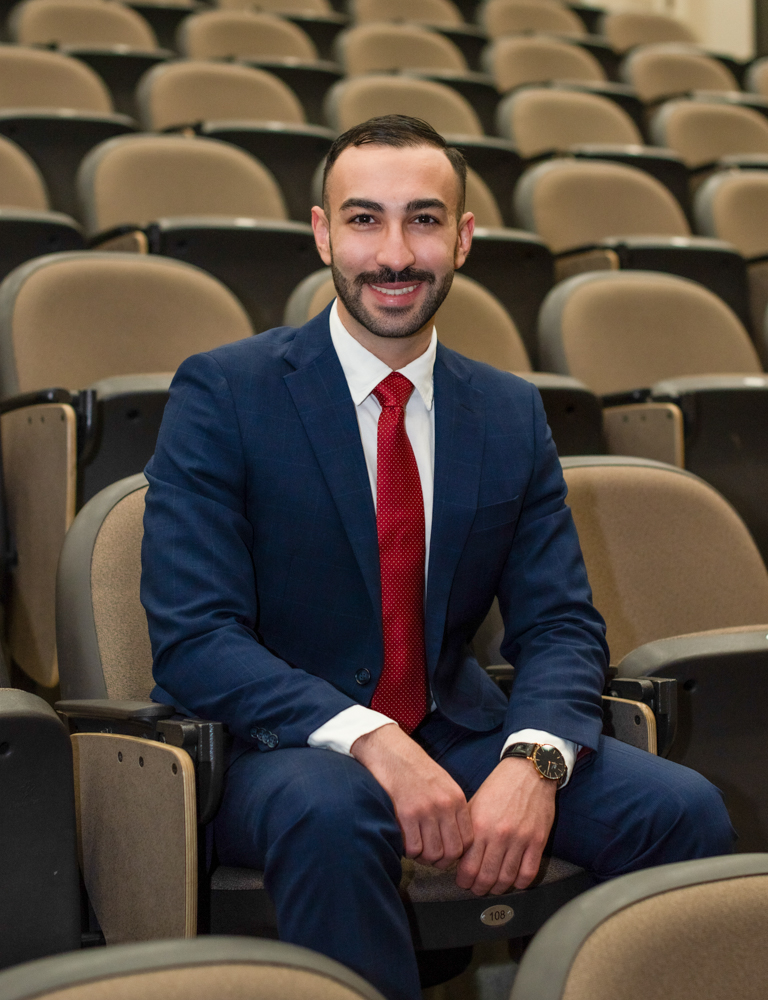Convocation Spotlight: MD '24 grad Daniel Ghods-Esfahani
14 June 2024

MD '24 grad Daniel Ghods-Esfahani. Photo supplied.
Despite tremendous personal losses, Daniel Ghods-Esfahani’s commitment to serving others, making time for self-care and accepting support has helped him get to where he is today — graduating from the University of Alberta MD program and about to start residency. We caught up with him to learn more about his story and what comes next on his journey.
What initially drew you to medicine?
My passion for medicine is deeply rooted in my unique journey. Born in Iran, I immigrated to Canada with my parents at the age of ten. Witnessing the socioeconomic and political injustices in Iran ignited a desire within me to become an advocate. I found the greatest fulfilment in activities that involved working with and serving others. This naturally led me to pursue medicine, a field that embodies humanism at its core. Moreover, my innate curiosity, whether in my hobbies or academic pursuits, has always driven me to learn more. Medicine, which values and rewards self-directed learning and curiosity, was the perfect fit for my aspirations.
What are you most proud of from your time in the program?
My greatest accomplishment during medical school isn’t tied to a single event or task. Rather, I would say it was being able to commit to and carry out my hobbies and passions alongside my academic and research commitments. Serving as an advocate among the Association of Families of Flight PS752, DJing and playing competitive soccer enriched my personal life but also provided me with a more holistic approach to my medical education.
What was the biggest challenge you faced during your degree?
The biggest challenge I faced was in January 2020 when I lost my partner and her family in the downing of Flight PS752 by the Islamic Revolutionary Guard Corps in Iran. The injustice, lack of transparency and immense loss were incredibly difficult to cope with. Alongside many other family members of the victims, I channelled this grief into advocacy by serving among the Association of Families of Flight PS752 victims. Together, we took on numerous initiatives to advocate for justice for the innocent lives lost on Flight PS752.
How did you stay motivated and who helped you keep going when things got tough?
The biggest source of motivation throughout the ups and downs of medical school has been keeping my end goal in sight and remembering why I decided to enter this discipline. Additionally, having hobbies outside of medicine served as an escape which provided me with work-life balance. Last but not least, leaning on my support structure, whether it was my family, peers or the amazing staff at the FoMD’s Office of Advocacy & Wellbeing helped me when things got tough.
What advice would you give to a student thinking of entering this program?
Medicine is undoubtedly challenging, from the admissions process through graduation and into residency. To prepare, try to understand what daily life as a physician entails. This can be done by speaking with professionals in the field or reading about their experiences. If you truly feel that medicine is your calling, don’t give up! While medical school admissions are highly competitive, don't let that discourage you. Remain persistent, work hard and continually seek opportunities to learn and grow.
What have you learned about yourself?
I have learned that I perform at my best when I attend to my own mental and physical wellness. As a result, I plan to prioritize these two things alongside my residency training to be able to be a better clinician and learner and ultimately serve patients more effectively.
What comes next for you?
I'll be starting my residency in otolaryngology — head and neck surgery — and looking forward to serving my home community here in Edmonton.